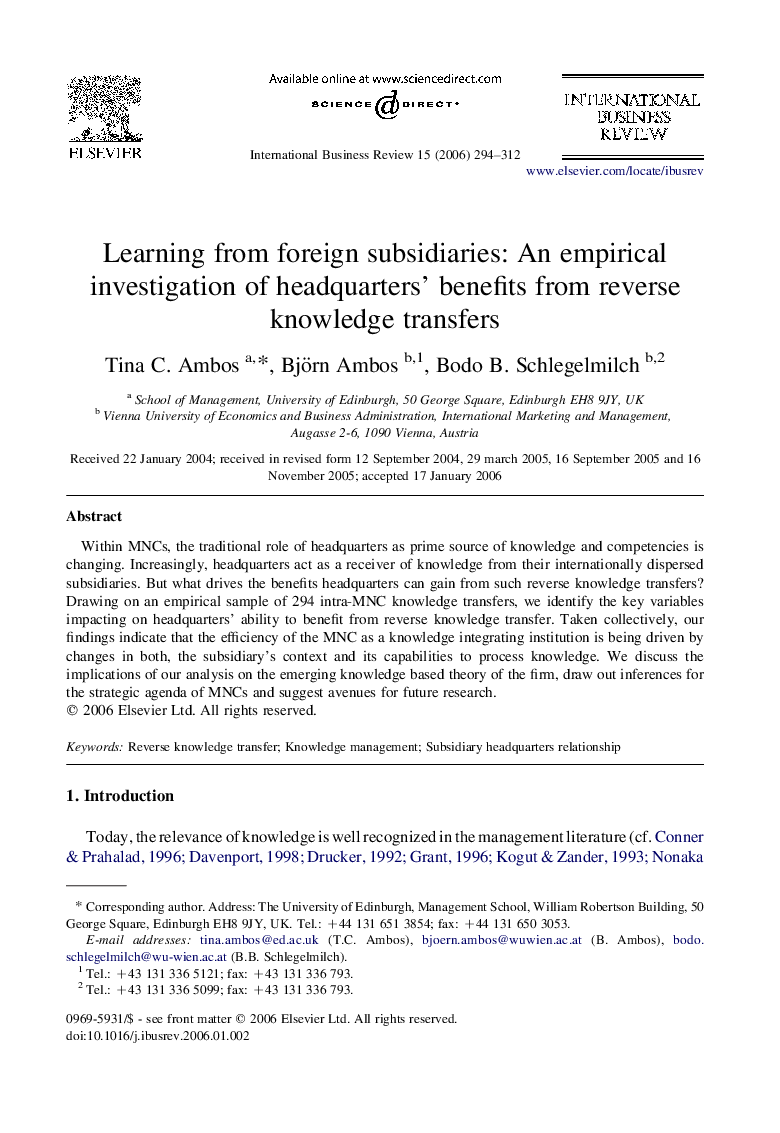| Article ID | Journal | Published Year | Pages | File Type |
|---|---|---|---|---|
| 1001792 | International Business Review | 2006 | 19 Pages |
Within MNCs, the traditional role of headquarters as prime source of knowledge and competencies is changing. Increasingly, headquarters act as a receiver of knowledge from their internationally dispersed subsidiaries. But what drives the benefits headquarters can gain from such reverse knowledge transfers? Drawing on an empirical sample of 294 intra-MNC knowledge transfers, we identify the key variables impacting on headquarters' ability to benefit from reverse knowledge transfer. Taken collectively, our findings indicate that the efficiency of the MNC as a knowledge integrating institution is being driven by changes in both, the subsidiary's context and its capabilities to process knowledge. We discuss the implications of our analysis on the emerging knowledge based theory of the firm, draw out inferences for the strategic agenda of MNCs and suggest avenues for future research.
